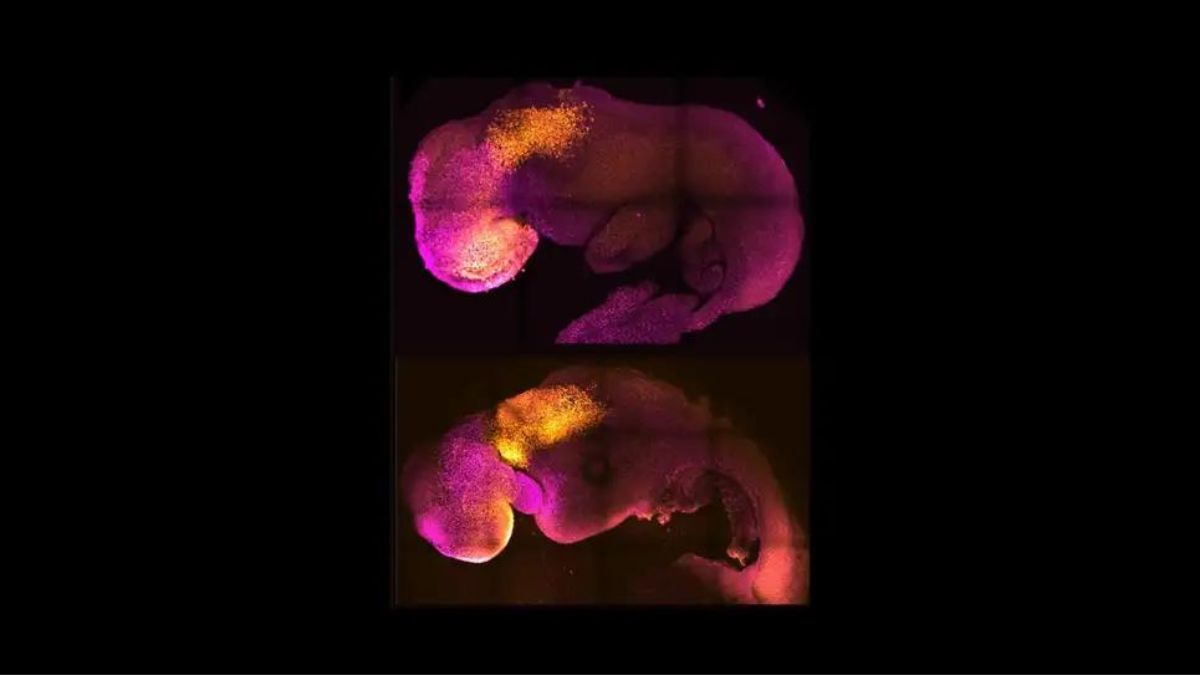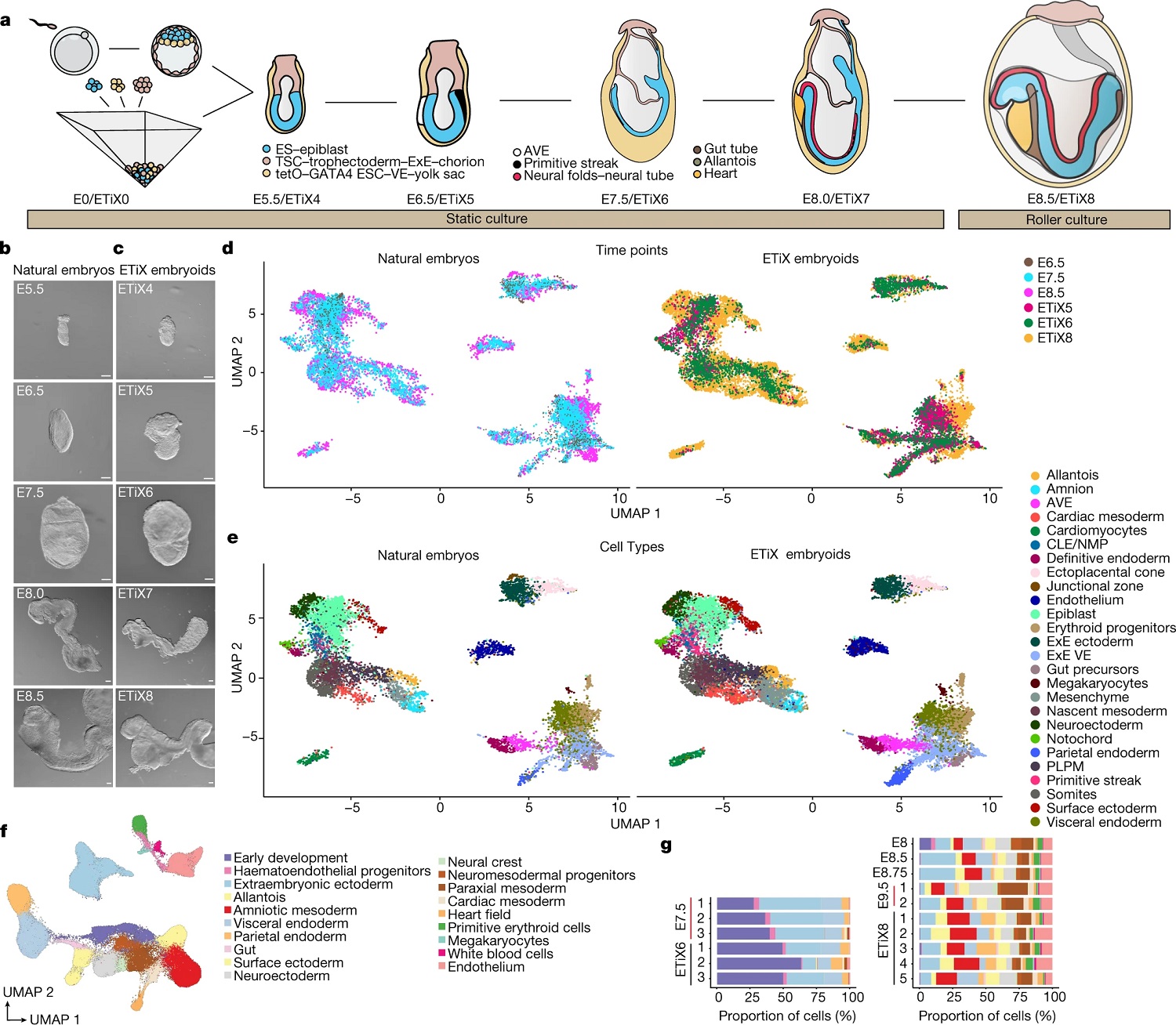UK Scientists creates mouse embryo from stem cells, without sperms or eggs
November 21, 2022 By Raulf Hernes

(Image Credit Google)
 Image: Nature[/caption]
Miscarriage can occur in up to 50% of pregnancies, and many embryos formed through in-vitro fertilization can also fail to implant or grow. The ability to study these early stages of development up close could provide scientists with a wealth of information about how we become the people we are.
Such research has ethical implications, as well as potential lessons in creating full-functioning synthetic organs. Last year, the International Society for Stem Cell Research eased its guidelines for lab-grown human embryos.
The biggest challenge right now is creating synthetic mouse embryos that can survive past the early stages of development in the lab (it takes about 20 days for mice to fully develop). Such advancements are likely to necessitate the development of artificial wombs or placenta-like structures, which scientists are also working on. The same Israeli team demonstrated last year that it was possible to grow fetuses in a beaker for up to six days, and the Cambridge team says they are working on their approach as well.
Image: Nature[/caption]
Miscarriage can occur in up to 50% of pregnancies, and many embryos formed through in-vitro fertilization can also fail to implant or grow. The ability to study these early stages of development up close could provide scientists with a wealth of information about how we become the people we are.
Such research has ethical implications, as well as potential lessons in creating full-functioning synthetic organs. Last year, the International Society for Stem Cell Research eased its guidelines for lab-grown human embryos.
The biggest challenge right now is creating synthetic mouse embryos that can survive past the early stages of development in the lab (it takes about 20 days for mice to fully develop). Such advancements are likely to necessitate the development of artificial wombs or placenta-like structures, which scientists are also working on. The same Israeli team demonstrated last year that it was possible to grow fetuses in a beaker for up to six days, and the Cambridge team says they are working on their approach as well.
Leave a Reply

Apple's iOS 18: A Leap into the AI Era
March 12, 2024

Google's Regular Pixel 8 Won't Get Gemini Nano AI
March 12, 2024

MacBook Air M3 Makes Amends for M2's Storage Blunder
March 11, 2024

Samsung Unveils the Galaxy M15 5G
March 11, 2024

Elon Musk's xAI to Open-Source Chatbot Grok
March 11, 2024

Contra: Operation Galuga - A Modern Run-and-Gun Classic
March 11, 2024

Musk Confirms X's TV App Arrives This Week
March 11, 2024
RELATED NEWS
2
3
4
5
6
7
8
9
10



